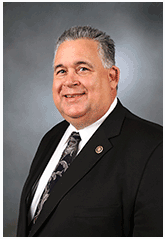JEFFERSON CITY — On Monday, I was proud to file Senate Bill 380, my first piece of legislation as a state senator. Senate Bill 380 establishes a committee to assess the continuation of the Money Follows the Person Rebalancing Demonstration Program (MFP), which provides support for Missourians who have disabilities, and those who are aging, to transition from institutional care to home- and community-based services (HCBS). Currently, 43 states and the District of Columbia participate in MFP programs.
If passed, the committee will be tasked with exploring cost savings, possible program improvements and the extent to which the MFP program is achieving its purposes, as well as investigating the continuation of the program beyond its current demonstration period.
Deciding where and how to live is a highly personal and important decision that we should be able to make for ourselves, as opposed to being determined for us by a physical disability or age. By eliminating certain barriers that restrict the use of Medicaid funds, the MFP program aims to give seniors and physically disabled citizens a choice in where they will receive their long-term care.
Since 2008, the program has assisted over 1000 Missourians in transitioning from institutional care, back into the community—enabling them to achieve greater independence and a better quality of life. Continuing the MFP program is not only the right decision to make for Missourians, but also the most fiscally responsible course of action for Missouri. In 2012, the average monthly cost of nursing home care was $4,484, while the average monthly cost of HCBS care was $905 and $862 for the aged and physically disabled, respectively.
While SB 380 simply establishes a committee to study the continuation of the program, it’s really just the first step to ensuring that the program is available to help Missouri citizens live fuller, more independent lives for years to come.
Please visit Sen. Wieland’s official Missouri Senate website at www.senate.mo.gov/wieland. |



